Four More Significant Price Hikes Coming for Croatian Residents
June the 6th, 2022 - Croatian residents are unfortunately going to have to tighten their belts once again as a new wave of price hikes for things used almost daily is on the horizon.
As Poslovni Dnevnik writes, the fact that Croatian residents are expecting major economic and social blows to continue as we move forward has been evidenced, among other things, by all of the upcoming price increases that were announced in just one day, according to a report from Index.
Fuel
The media has unfortunately announced a drastic increase in fuel prices in Croatia for next week.
Next week, a litre of diesel will increase significantly - by 83 lipa per litre - and the new price will be around 13.97 kuna. For a litre of petrol, Croatian residents will have to pay 70 lipa more, meaning that one litre of petrol will cost 14.56 kuna. In addition to that, the price of blue diesel will increase by 84 lipa, the price of a litre of blue diesel will therefore be 10.09 kuna.
Telecom services
All three leading telecom companies in Croatia, it seems, have decided to increase the price of at least some of their services. These price increases should become evident as of July the 1st, 2022, and, according to the information available so far, they're primarily related to mobile services.
Heating
Heating price hikes for the residents of Zagreb, Osijek, Sisak, Velika Gorica, Samobor and Zapresic have also been announced, as was reported by HRT.
Vehicle registration procedures
Of all the announced price increases for the country in the last 24 hours, the fourth regards the procedures surrounding vehicle registration.
Car registration could increase by about thirty kuna, due to additional insurance needing to be taken out in the case of incidents with wild animals on the country's roads. In the first tender, the Ministry of Agriculture failed to contract a single insurance policy with insurance companies that believe that the offered 40 million kuna is not enough to cover the total damages this type of road accident incurs.
For more on inflation, make sure to check out our dedicated lifestyle section.
PEPSEA Project: WebGIS System for Marine Pollution Management Created
June the 6th, 2022 - The cross-border PEPSEA project has seen Split-Dalmatia County receive some extremely valuable equipment to deal with cases of marine pollution, which is integrated with the WebGIS platform developed for the PEPSEA project by Promet i prostor d.o.o.
As Morski writes, the entire system of marine pollution management in closed off parts of the sea (deemed a crisis response system) has been raised to a higher level.
The WebGIS platform, which boasts integrated data for the measuring of equipment, enables the viewing and management of data, as well as communication between users via the web service itself. Since information on the location and cause of the crisis can be crucial, and the WebGIS system, with its functionality, allows for the quick and easy management of (spatial) data, the system has been given to the Split-Dalmatia County Fire Brigade.
With the aim of achieving a high level of strategic action, improving communication between services and employees, easier access to key data in crisis situations and simplifying operational processes, an unlimited number of users and organisations can use the system and communicate quickly, easily and efficiently.
Furthermore, in the event of marine pollution being discovered, the PEPSEA project's WebGIS system, with regard to integration with marine monitoring stations, automatically notifies system users that pollution has occurred in order to have them react promptly to it.
In addition to "live" data on marine pollution, the WebGIS system also contains data on bathymetric and geodetic surveys, stereo images, multispectral images, water and sediment analysis and intervention plans, and the system allows users to enter new and modify existing data at any given time, all with the aim of having a complete and accurate database that is the basis for making timely and quality decisions at both strategic and operational levels.
With the funds and activities of the PEPSEA project, the first buoy with sensors was installed in Kastela Bay in the Croatian part of the Adriatic Sea, and a unique floating tank of five cubic metres was procured. Two IP cameras have been installed on Cemex's towers, and a drone worth 150,000 kuna has been procured to record the extent of the pollution and coordinate remediation and rescue operations from the air. In addition, 500 metres of absorbent and 400 metres of rigid dams, packages for the remediation of pollution in ports and complete protective equipment for human use were all also procured.
Tomislav Vidic, senior expert associate of the Administrative Department for Tourism and Maritime Affairs of Split-Dalmatia County, explained precisely what was gained by installing this equipment, who manages it, and how they do so.
''In cooperation with firefighters, we installed two cameras on the Cemex towers, and then a buoy with pollution sensors in the Kastela Bay, for which we had to obtain eight permits from various ministries that are to be renewed every three years. In this way, in the event of marine pollution, we'll be able to ensure the operation of the emergency services within the "golden hour", ie before the stain on the sea's surface spreads uncontrollably by being carried by the wind and the currents. The sensor on the buoy monitors all changes at sea and notifies the fire brigade via email, which then, in the case of pollution, alerts the Harbour Master's Office, and those responsible for solving the situation at hand.
The Harbour Master's Office has data on the movement of ships in order to find out which of them is the source of pollution, and cameras are especially helpful in this work. A drone can also be sent up, which gives the best insight into the situation on the ground both before and during the remediation action. Kastela Bay is a special area which is endangered not only by mercury and other pollutants from former factories in the Kastela area, such as Jugovinil, but also by thedaily transfer of fuel from tankers to the INA terminal, as well as various raw materials in the northern port.
According to Vidic, as part of the PEPSEA project (Protecting the Enclosed Parts of the Sea in the Adriatic from Pollution), training sessions for firefighters were organised in order to better handle this sophisticated equipment and get involved in the firefighting and rescue operations at sea.
The PEPSEA project is otherwise a cross-border project implemented by four partners each from the Croatian and Italian sides. The project is worth a total of 2.9 million euros, of which 513 thousand euros went to Split-Dalmatia County. It is being co-financed from the Interreg V-A Italy-Croatia Cross-border Cooperation Programme 2014-2020.
For more, make sure to check out our dedicated lifestyle section.
Ari Mittleman's Path of the Righteous Presented at Esplanade in Zagreb
On Tuesday, May 24, 2022 over 200 diverse participants helped launch the Croatian translation of Paths of the Righteous by Ari Mittleman at the Esplanade Hotel in the heart of Zagreb.
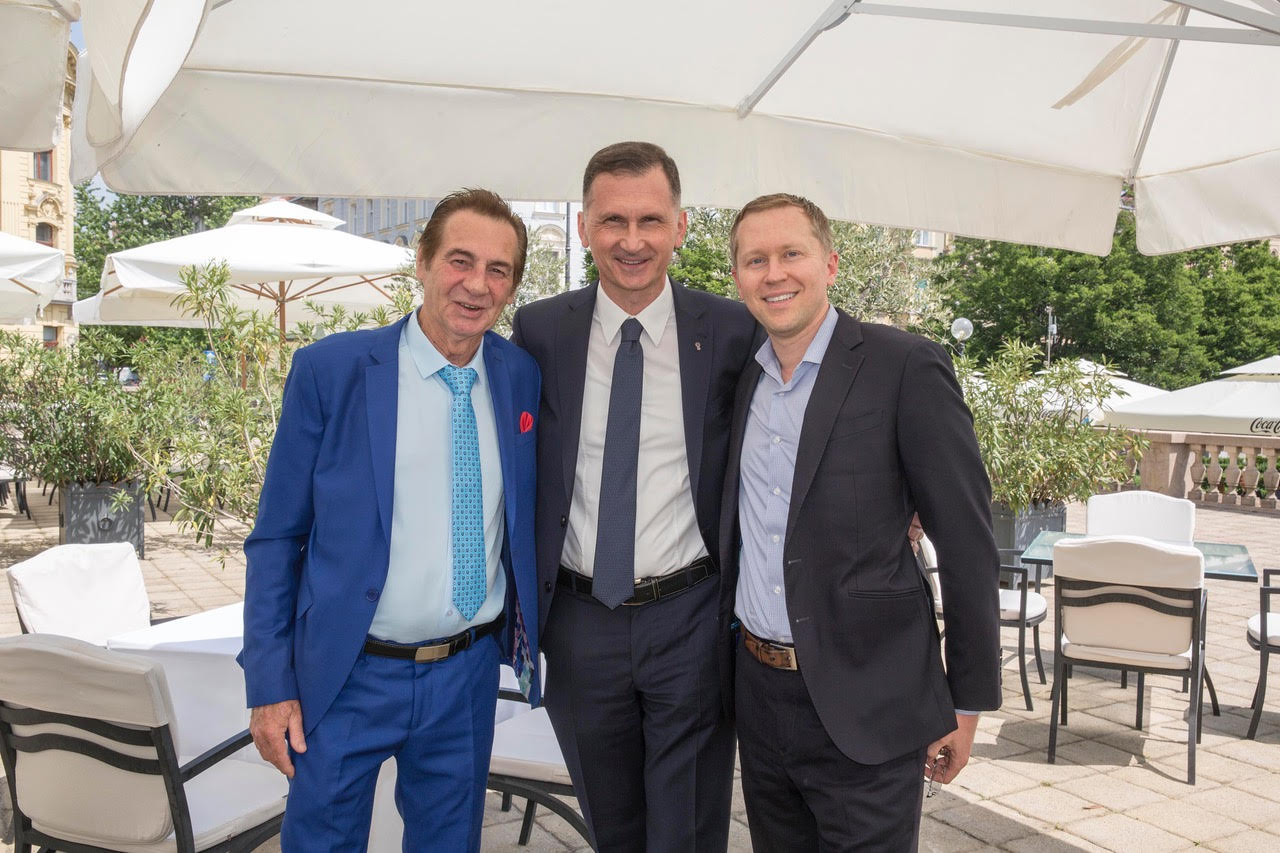
Through fast paced short stories, the new book from Gefen Publishing House in Jerusalem profiles eight non-Jews who have spoken up for the Jewish community in recent years. One of them, Dr. Dragan Primorac, is a medical doctor in Zagreb. He previously served as Minister of Education, Science and Sport deepening ties between Israel and Croatia.
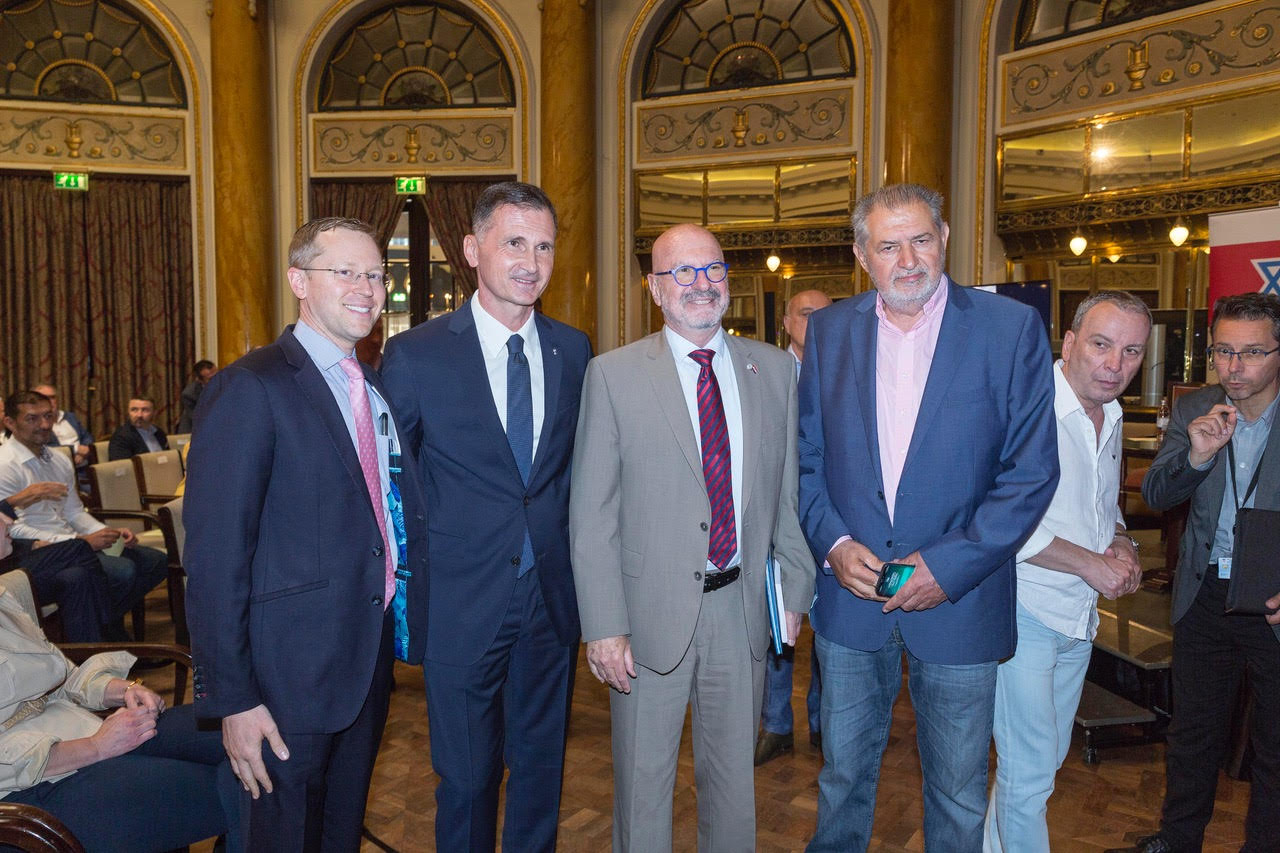
The author, Ari Mittleman, is originally from Pennsylvania in the United States and was compelled to write the book after the massacre at Tree of Life synagogue in Pittsburgh, Pennsylvania in October 2018.
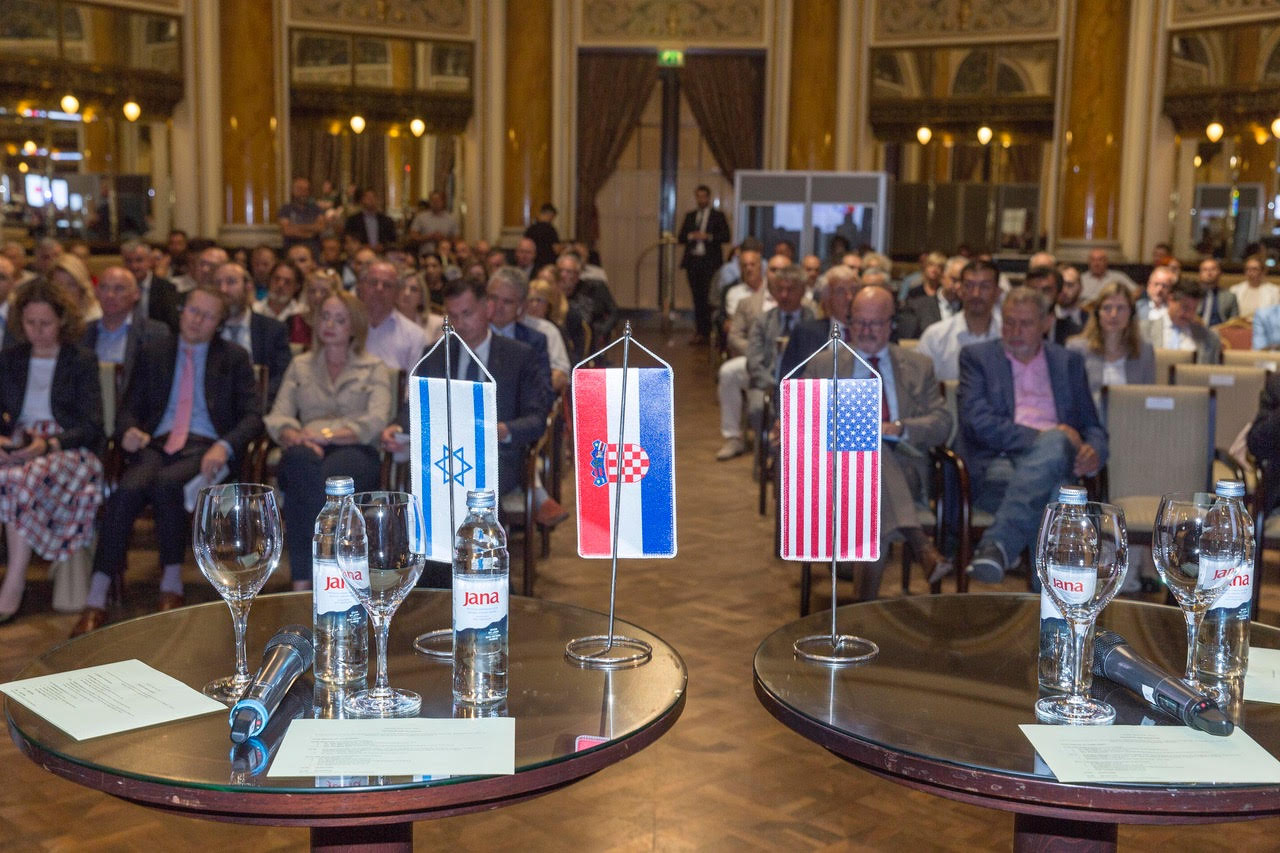
The event was spearheaded by Croatian Minister of Culture Nina Obuljen Korzinek and Israeli Ambassador Ilan Mor.
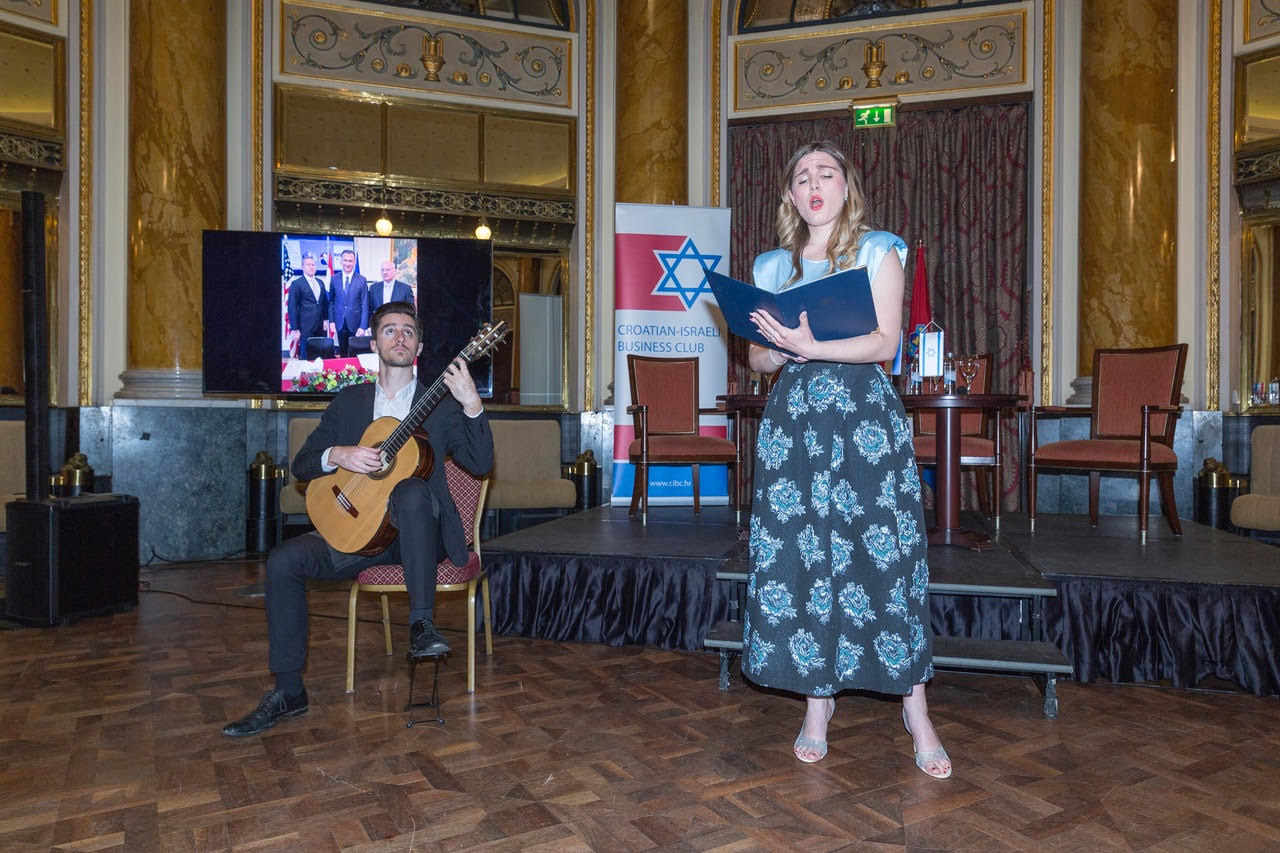
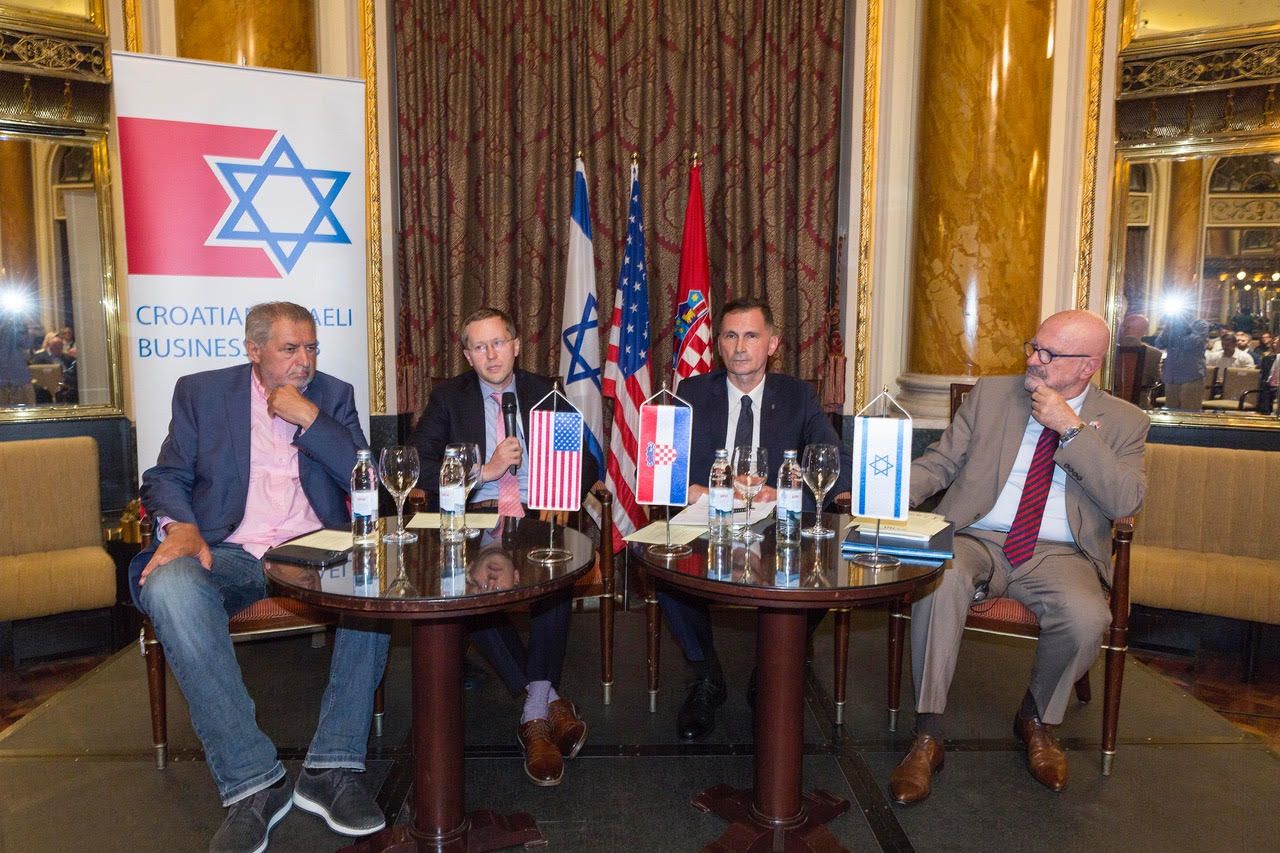
WTA Makarska Open: Jule Niemeier Wins Singles Title, Tena Lukas and Dalila Jakupović in Doubles
June 6, 2022 - German Jule Niemeier won the WTA Makarska Open by Valamar tournament, while Croatian Tena Lukas and Slovenian Dalila Jakupovič won the doubles tournament!
In the final match on sunday, Jule Niemeier beat Italian Elisabetta Cocciaretto 7-5, 6-1.
Niemeier won the first set, 7-5. After that, she started the match better, but then it reached 5-5. However, at the very end of the set, Niemeier hit some crucial points to win the first set 7-5.
In the second set, it was a one-way street. Niemeier was much better all around. Cocciaretto could not find any answer to Niemeier, who deservedly won the first Makarska WTA Open by Valamar tournament.
Croatian Tena Lukas and Slovenian Dalila Jakupovič won the WTA Makarska Open by Valamar doubles tournament. In front of almost a thousand spectators on the Central Court of the Valamar Tennis Center, Lukas and Jakupovič emerged as winners in a difficult match against the Serbian duo Olga Danilović and Aleksandra Krunić. The result was 5-7, 6-2 (10-5).
The first set was better for the Serbian team, then Dalila and Tena took over and dominated the final. In the tie-break match, they had the patience and composure to finish the job.
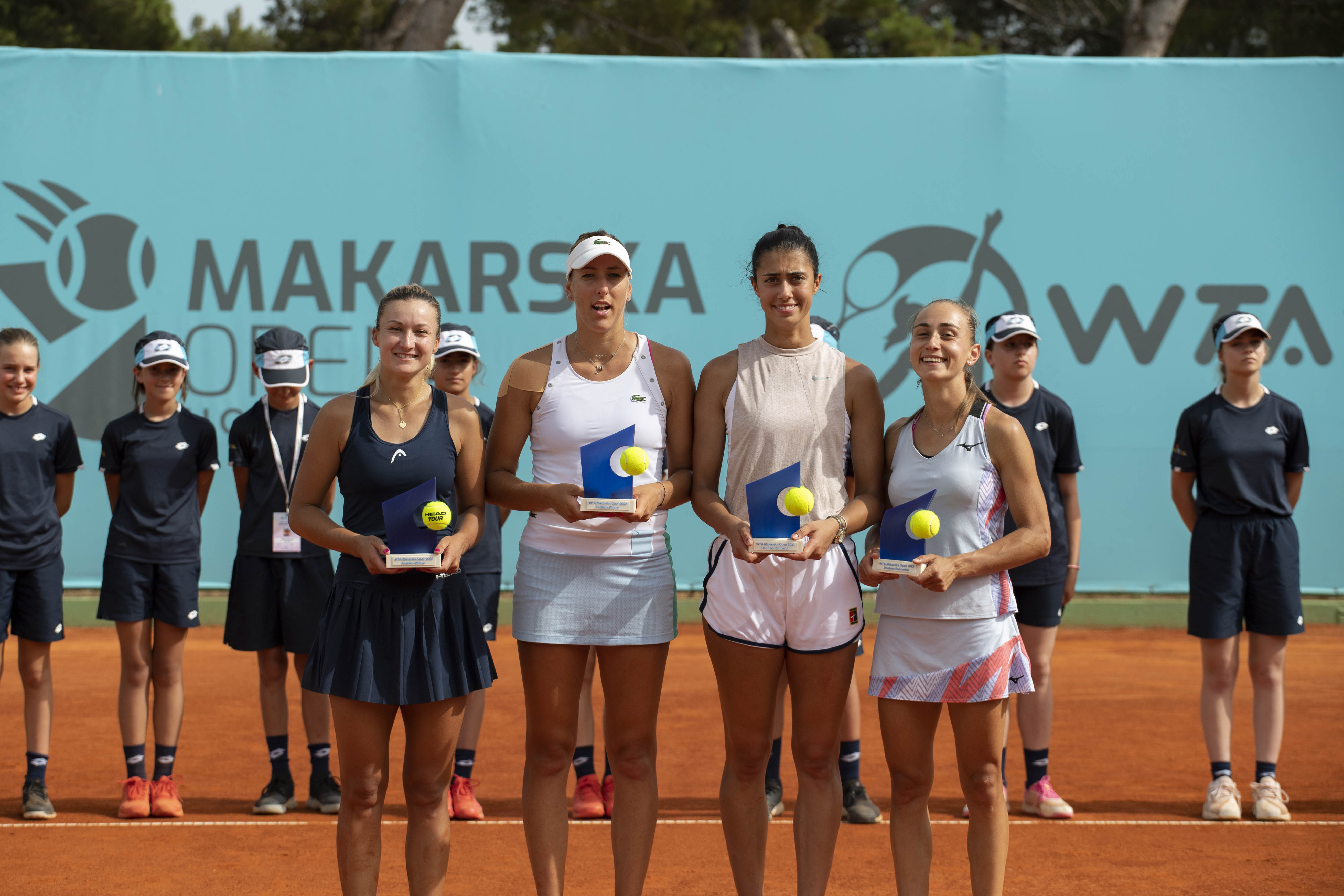
Kevin Clement
"Thanks to everyone who cheered for us. This is a special title for me, but this is my tournament. I don't know; emotions overwhelmed me. Thanks to my parents, especially my grandfather. Thanks to my brother Feliks, congratulations on this tournament," said the overjoyed Tena, who also won the ITF in Rome worth 60 thousand dollars two weeks ago.
Tomislav Družak, Special Envoy of the Prime Minister, and Makarska Mayor Zoran Paunović awarded the trophies to the tennis players.
"Thank you all for supporting the players. It was nice to see passionate fans in the stands. Thanks to everyone who supported the tournament," said tournament director Feliks Lukas.
"I congratulate Jule on the big week and wish her all the best in her career. This is one of the best tournaments I have played in. I feel at home here because I am on the other side of the Adriatic," said Italian Elisabetta Cocciaretto.
"I'm sorry I stopped Elisabetta down. However, I enjoyed being here, one of the most beautiful tournaments I’ve been to. I also had a great time at the party for the players," said the winner Jule Niemeier.
It has been a fantastic first edition in Makarska, and the best is yet to come!
For more, make sure to check out our dedicated sports section.
Croatian Basketball Championship Finals: Cibona Wins Third Game against KK Zadar
June 5, 2022 - Cibona Zagreb was able to conquer back their home-court advantage with tonight's win against the defending champions and now lead 2:1 in the best-of-five series - 62:67 (36:30).
Zadar had opened the series with a 70:77 win in Zagreb on Monday to put pressure on Cibona. The team from the capital managed to come back on Wednesday with a 77:73 win and returned the favor tonight.
During the opening play, Carter failed to nail his dunk as the 4000 spectators at Krešimir Ćosić Arena in Zadar saw a slow start with both sides acting slightly nervous. It took almost 3 minutes before Thompson made a free throw to open the scoring.
After finishing the first quarter with a slight lead (19:17), the hosts benefitted from Cibona center Branković getting into foul trouble early. Zadar pulled away to 34:24 within the first 5 minutes of the second quarter and, despite only scoring once again, went into half-time with a 36:30 lead.
During the second half, Okorn Gašper's team held Zadar to only 26 points and decided the game with a strong fourth quarter effort. Top scorers for the guests were Toni Nakić (16 points), Roko Prkačin (13) and Lovro Gnijdić (10).
Zadar coach Srđan Hellbich did not seem to have listened to his own words. After the defeat in game two, he had criticized himself for not adding any of his young players to the rotation, only to play the routine rotation again tonight. Zadar's top scorers were Thompson with 14, Drežnjak with 12, and Mavra with 11 points.
Both teams will meet again in Zadar on Tuesday, where Cibona may already win this year's title.
Result by quarters: 19:17, 17:13, 11:14, 15:23
Referees: Hordov Tomislav, Jurčević Josip, Gracin Franko
Box-score: https://fibalivestats.dcd.shared.geniussports.com/u/HKS/2097388/
For more, make sure to check out our dedicated sports section.
77th Anniversary of Macelj Atrocities Commemorated
ZAGREB, 5 June 2022 - A mass and other religious services were held in Macelj on Sunday to commemorate the 77th anniversary of the killing of numerous defeated soldiers and civilians by the Communist regime in early June 1945 in that Croatian town near the border with Slovenia.
The War Veterans' Affairs Ministry State Secretary Darko Nekić said in Macelj today that investigations into what happened to victims of the Second World War and to those killed in the aftermath of that war were one of the major tasks of the ministry.
According to some estimates, in Macelj and nearby forests around 13,000 people were killed in early June 1945. With the 1,163 identified victims, including 21 priests, Macelj is so far the biggest site of Communist crimes in Croatia. A score of mass graves have been exhumed at Macelj so far.
Nekić said that the ministry and the Macelj 1945 association were intensively working on shedding the light on those crimes.
The official said that over the last 18 months, nine locations have been searched for remains of the victims, and at one of them, the remains of 84 people have been unearthed.
For more, check out our lifestyle section.
Zagreb-based Enterprises Earn Half the Total Profit of Croatia's Enterprises in 2021
ZAGREB, 5 June 2022 - Enterprises based in the City of Zagreb netted HRK 23.6 billion in profit in 2021, accounting for 52.7% of the profit of all enterprises in Croatia, according to Financial Agency (FINA) data.
Enterprises based in the City of Zagreb, which also has county status, are first according to all criteria, except business efficiency.
A third of all enterprises in Croatia headquartered in Zagreb
The capital city has 47,956 enterprises, a national share of 33.2%, employing 370,800 workers (38.4%), and their revenue totals HRK 433.2 billion, or 48.9% of the revenue generated by all Croatian enterprises.
In 2021, enterprises in the City of Zagreb netted HRK 23.6bn in profit, up 99% on the year.
This was mainly due to the INA oil company with a profit of HRK 1.3bn, the HEP power utility with HRK 1.1 billion, and the Fortenova retail group with HRK 318.2 million. In 2020, Fortenova posted a loss of HRK 2.2bn.
Split-Dalmatia County had 15,908 enterprises last year with 81,050 employees, revenue totalling HRK 56.2bn and a net profit of HRK 2.56 billion, up 412.2% on the year.
Enterprises in Primorje-Gorski Kotar County netted HRK 2.2bn in profit last year, HRK 1.7bn more than in 2020. The county had 11,753 enterprises last year with 63,100 employees and revenue amounting to HRK 45.8bn.
Enterprises in Zadar County netted HRK 1.1bn in profit, up from HRK 74.3m in 2020. Last year 5,650 enterprises operated in the county, with 26,200 employees and HRK 17.6bn in revenue.
Zagreb County had 9,811 enterprises with 66,600 employees which generated HRK 67.8bn in revenue and HRK 2.7bn in net profit, up 16.4% on 2020.
Osijek-Baranja County had 6,134 enterprises with 43,400 employees which generated HRK 33.5bn in revenue and HRK 1.8bn in net profit, up 40.7% on 2020.
The counties with the smallest numbers of enterprises in 2021 were Lika-Senj (1,010), Požega-Slavonia (1,031) and Virovitica-Podravina (1,259). Enterprises in Lika-Senj County, for instance, had 4,918 employees and generated HRK 3bn in revenue as well as HRK 147.7m in profit.
Istria County had 11,785 enterprises last year which netted HRK 1.8bn in profit, mainly thanks to the profits of the tourism companies Valamar Riviera (HRK 304.6m), Maistra (HRK 170.6m) and Plava Laguna (HRK 145.1m).
Dubrovnik-Neretva County had 4,450 enterprises which netted HRK 517m in profit, while Šibenik-Knin County's enterprises netted HRK 217.9m in profit.
In terms of business efficiency, enterprises in Karlovac County came first, followed by those in Zadar and Krapina-Zagorje counties.
(€1 = HRK 7.5)
For more, make sure to check out our dedicated business section.
Rise of Croatian Higher Education: Mislav Balkovic Interview, Dean of Algebra University College
June 5, 2022 - Croatia is becoming increasingly successful at attracting foreign students to its English-language higher education programmes, with the pioneering Algebra University College leading the way. TCN catches up with the Dean of Algebra, Mislav Balkovic.
One of the most interesting - and under-reported - positive trends in Croatia today has been the rise in numbers of foreign students choosing Croatia for their higher education, with many then choosing to stay in their newly adopted home upon graduation. With the media focusing on the emigration of Croatia's youth, this reverse brain drain, or brain gain, has been made possible by the availability of an expanded portfolio of high-quality graduate programmes on offer in the English language.
Without question, the leading academic pioneer in this field has been Algebra University College, which continues to raise the bar, as well as internationalise the quality of its higher education. Its recent partnership with Goldsmiths, University of London, is an excellent example of this. Having recently moved to a huge new campus, and with the highest percentage increase of students to its bachelor programmes last year, these are exciting times for Croatian higher education, and Algebra University College in particular. TCN caught up with the Dean of Algebra, Mislav Balkovic, to learn more about that, as well as what is coming next.
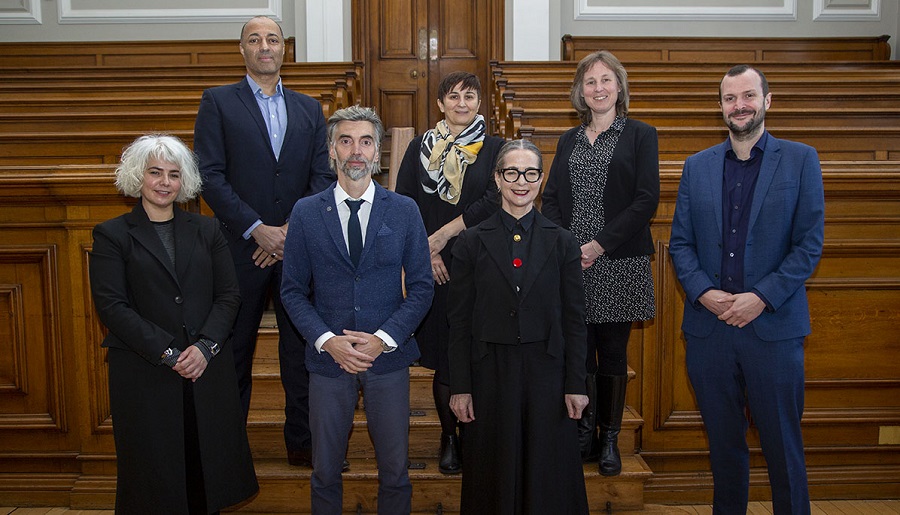
1. Croatia is perhaps not the first country that springs to mind in Europe when foreign students consider their higher education, but an increasing number are choosing Croatia for their graduate studies. What are the main competitive advantages that Croatia offers?
Competition in higher education in Europe and across the world is already high and only intensifying. In such circumstances, some countries and their institutions have been more successful than others. Croatia has a long tradition in quality higher education, and significant new investments in infrastructure and quality of our universities in recent years have strengthened this position. Apart from the universities per se, the quality of life, high level of security and touristic attractiveness of the country are additional factors in this equation. Finally, our 2013 EU accession and the Schengen agreement expected in months to come are also important. To conclude, from being the fastest growing touristic destination in Europe, Croatia is stepping up to become a fast-growing higher education destination. More than 80 study programmes delivered fully in English allow students to choose the best option in Croatia as their live and learn destination.
2. Algebra University College has been at the forefront of the higher education story in Croatia, and earlier this year, you signed an academic partnership agreement with Goldsmiths University of London. Tell us a little bit more about that, and how it came about.
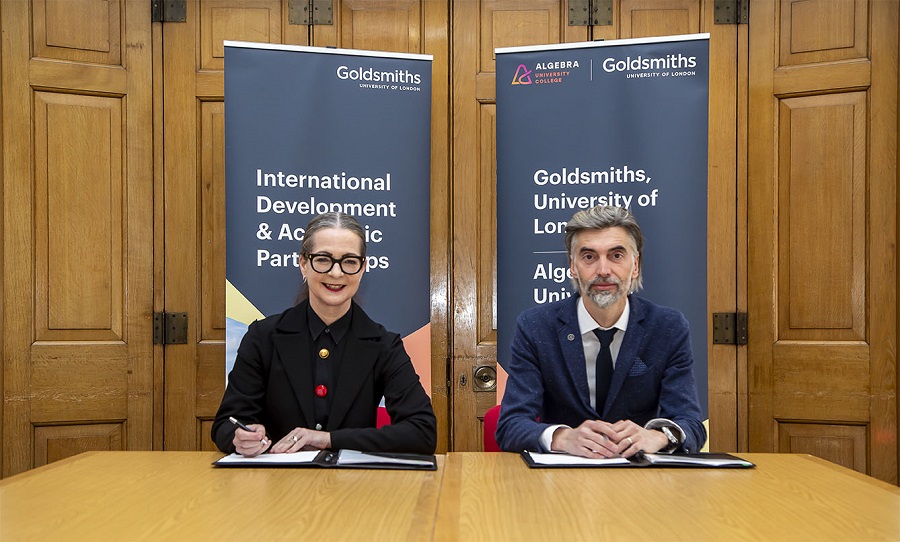
In order to be as attractive as possible not only to local students but also to talents from abroad, some 6 years ago we started to deliver our masters-level programmes exclusively in English. This required years of preparation, acquisition of teaching materials and books in English and further development of IT support systems for students. This increased our attractiveness and facilitated the recognition from Goldsmiths, University of London. For the past two and a half years we have been working together with our partners from London in order to get our programs recognized and validated in order for our students to be able to earn both degrees (Algebra’s degree and one from Goldsmiths, University of London) while studying at Algebra in Zagreb. This also counts as a recognition of the quality of Croatian national higher education by one of the top 500 universities in the world. Through the process, we managed to further develop our approach and incorporate some of the best practices from the British higher education system. In a nutshell, students who wish to obtain Algebra’s degree as well as a UK degree, could now achieve this in Zagreb, with an affordable financial investment. As a result, we started to also deliver our bachelor-level programmes in English so now international students can choose from a wide list of undergraduate and graduate study programmes / specializations. Our partnership with Goldsmiths, University of London is the only arrangement of this sort in Croatia. One of the reasons for how it came to be is most certainly the high marks in quality assessment that Algebra has been achieving for the past decade. The University of London wanted to have a high-quality partner institution, and they found it at our address.
3. You recently moved into a brand new campus as part of your continued expansion. Tell us a little about the facilities you now offer.
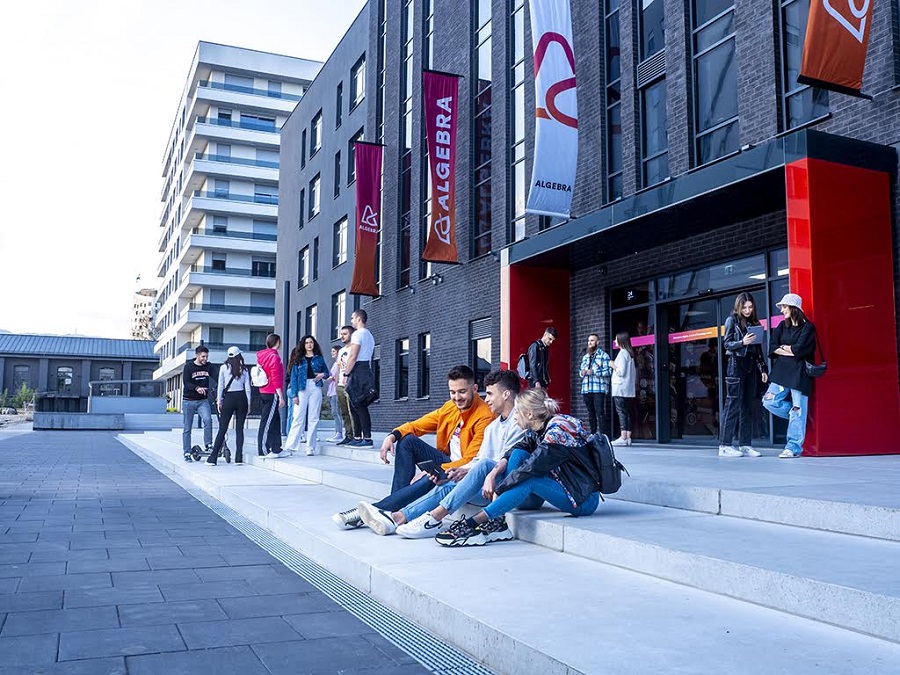
Our new campus was a 14.6 million EUR investment, by far the biggest such investment in private education in Croatia. Spreading over 12,000 sqm, the new campus has given us the opportunity to situate more than 35 fully equipped IT classrooms and lecture venues as well as the necessary infrastructure with the accompanying equipment. Apart from our new “Nimbus” data centre which boasts 80 physical servers and a supercomputer, students have at their disposal services and usage of our Innovation Lab, 3D Production Lab, fully equipped Audio & Video Studio, and a Production Room, library, exhibition halls and other facilities needed to ensure high-quality education. Students also have at their disposal 700 PCs, 40 3D printers of different types and sizes as well as networking labs and equipment providing them with a state-of-the-art learning experience in our digitally focused programmes in the areas of computer science, economy and arts. The new campus and its accompanying infrastructure are unmatched not only by Croatian higher education institutions but also by many other institutions globally.
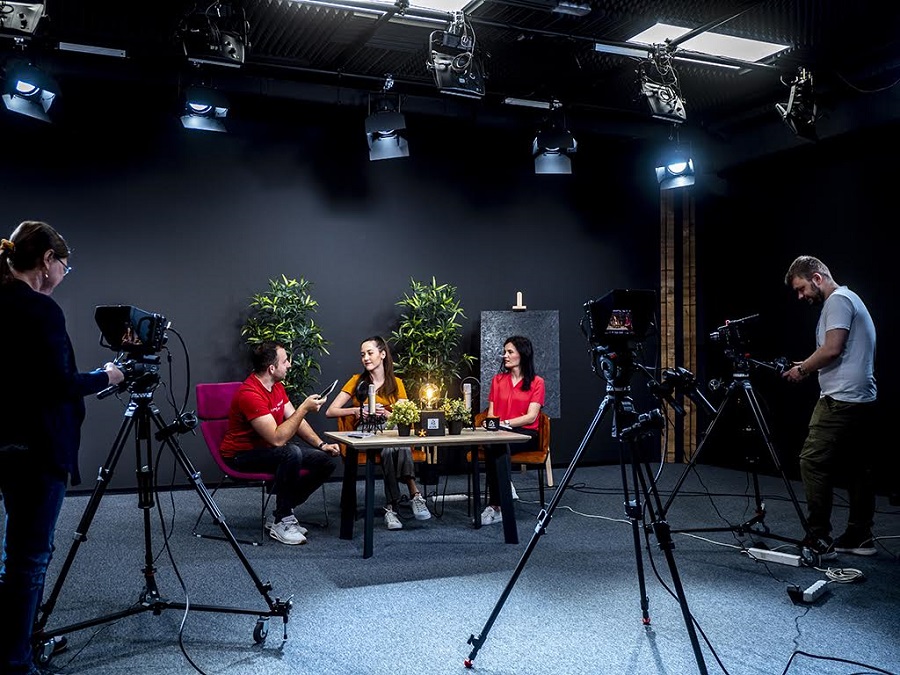
4. Graduate employment is an important consideration for many when choosing a course and location. Several students we have spoken to have spoken of their love of Croatia and hopes of finding work here upon graduation. Can you give us an overall picture of how the graduate labour market looks for Algebra students, and what help can you give those students in finding quality positions?
The Croatian labour market is highly vibrant, especially in digital careers. Our IT and digital industries have a double-digit growth each year and attract and employ more graduates than our higher education institutions are capable of producing. This means that there is a surplus of good and well-paid jobs for anyone with our degree or degree from other high-quality higher education institutions. An additional benefit of our degree is that it is easily recognized in all EU Member States as a result of 2013 referencing of our national qualifications framework and European Qualifications Framework. As a result, most of our bachelor-level students already work part-time, and more than 96% of graduates are employed in the industry some three months after graduation. The true testaments to this fast-growing market are the huge investments that have created two unicorns in Croatia, Rimac and Infobip. These and other companies now employ many international experts and have English as their main corporate language.
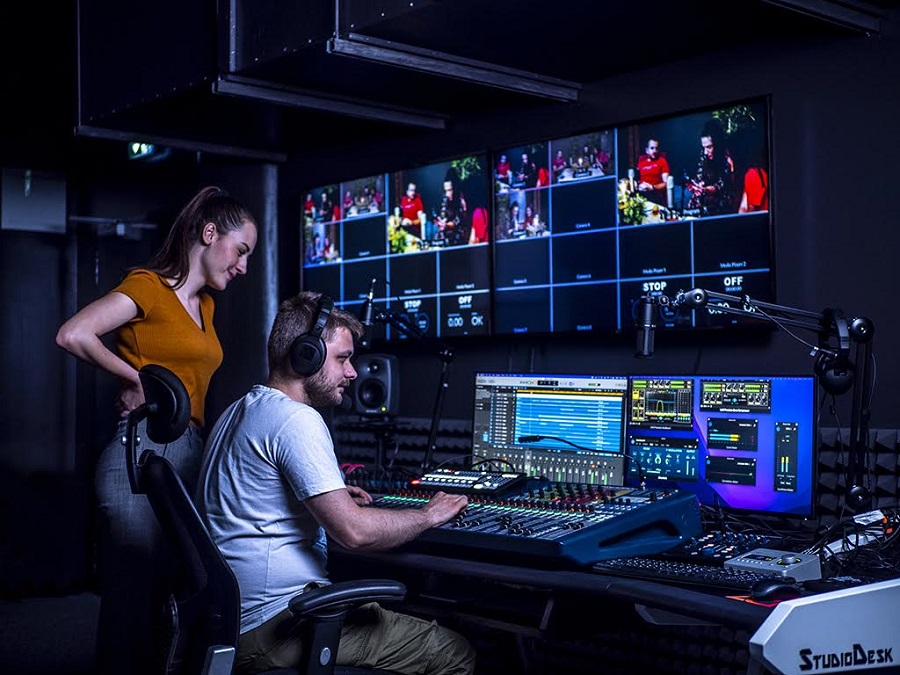
5. While most students are extremely happy with the efficiency of the paperwork from Algebra itself, Croatian bureaucracy is often cited by students as an issue. What practical steps can be taken to smoothen the bureaucratic process for foreign students?
The growth of the industry and the urgent need to attract talents to Croatia has changed this significantly, and there is now a continuous need for smooth and fast procedures. This is why our Visa centres in India and parts of the world now have strengthened processing capacity. Also, the Croatian Ministry of Interior now has people who are in close contact with international offices of universities. Depending on the country of students’ origin, with many there is already a signed agreement on the recognition of health insurance for students so they could work in Croatia as students more easily. Not all things are perfect, but universities are working together with employers to make the lives of international students easier. Also, the level of spoken English in Croatia is high so students coming from any part of the world should not experience any problems.
Still, to be sure all the procedures will be finished timely, international students coming outside the European Economic Area (meaning EU + few other countries), should start their admission process as early as possible.
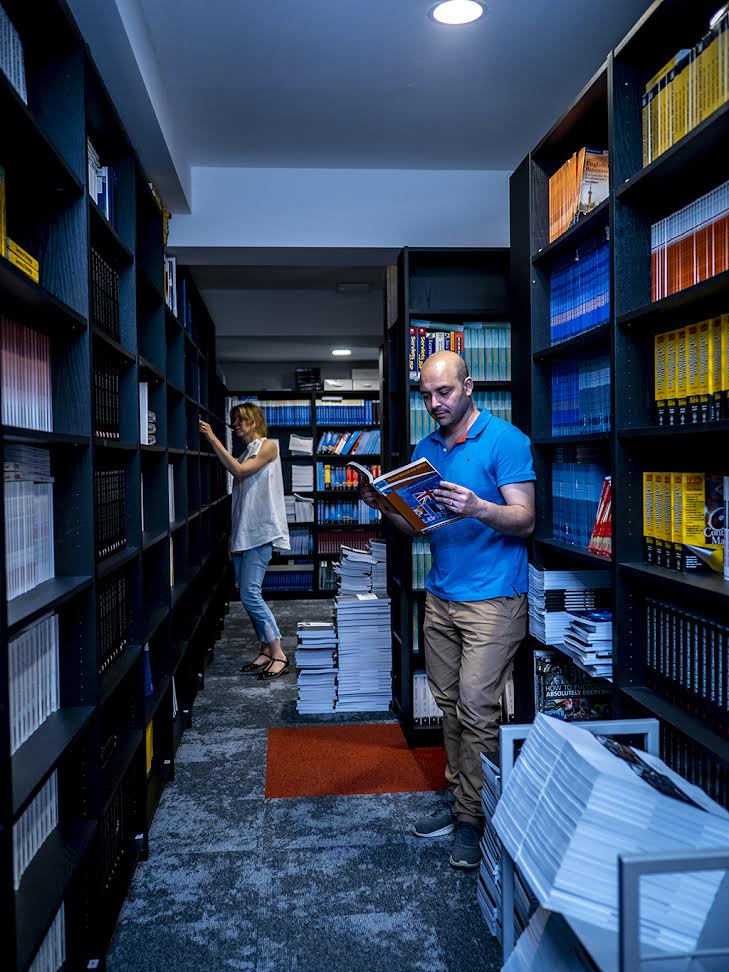
6. How can government best play a part in supporting the expansion of private higher education? What are the current friction points that need to be resolved?
In Croatia, students who study at private institutions pay commercial tuition fees, while those in public Universities pay almost nothing. This does not apply to international students because they pay commercial tuition fees whether they’re studying at a public or private university.
In order for private institutions to be more competitive and in order for students to receive the same treatment, subsidies that are linked to students should be applied, regardless of the ownership of the institution. Also, private institutions are not eligible for EU funds for the development of infrastructure, while state-owned ones are. Less important frictions and differences in approach are either already resolved or will be resolved by the beginning of the next academic year due to upcoming changes in legislation.
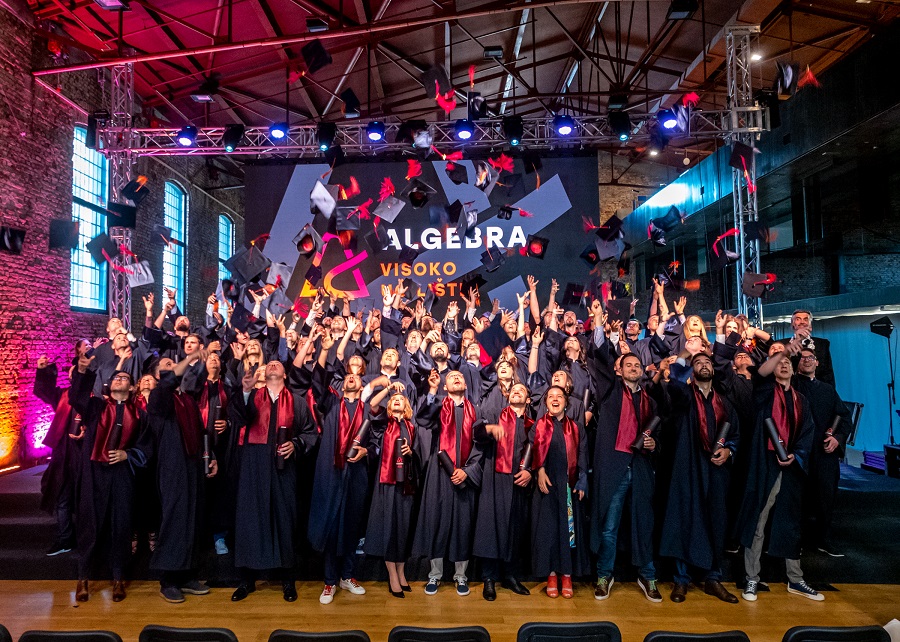
7. How do you see the English-language higher education sector looking in 5-10 years from now.
In my opinion, this is the only sector in Croatian higher education which has the potential to grow. The reason for such an assertion is the fact that Croatia is slowly losing its population (same as many EU countries) due to an ageing population, negative birth rates etc. Currently, this loss is happening at a rate of some 4% per year. We are the only institution in the country which still has an increase in the number of freshmen students at bachelor level of more than 10% each year (this year we have 25% more applications compared to last year). Still, I do not see a way for us to continue to grow indefinitely while numbers of domestic students are decreasing. Therefore, for us and other universities, I think English programmes could be the key to future development. Of course, just delivering teaching in English will be far from enough. Each institution would have to provide high-quality programs, infrastructure, teachers and projects for students and thus compete in the international higher education arena. Some institutions will be successful in this transition to international markets, while I expect most will not.
8. And finally, in a sentence or two, tell us why foreign students should be choosing Croatia for their graduate programme.
Croatia is indeed a live and learn destination – our country has tremendous natural beauties, a hard-to-match cultural heritage, affordable prices and quality higher education delivered in English. We are an EU Member State with a highly competitive, developed and fast-growing digital industry. Croatia awaits and welcomes talented young people to get their degree and to build their careers here.
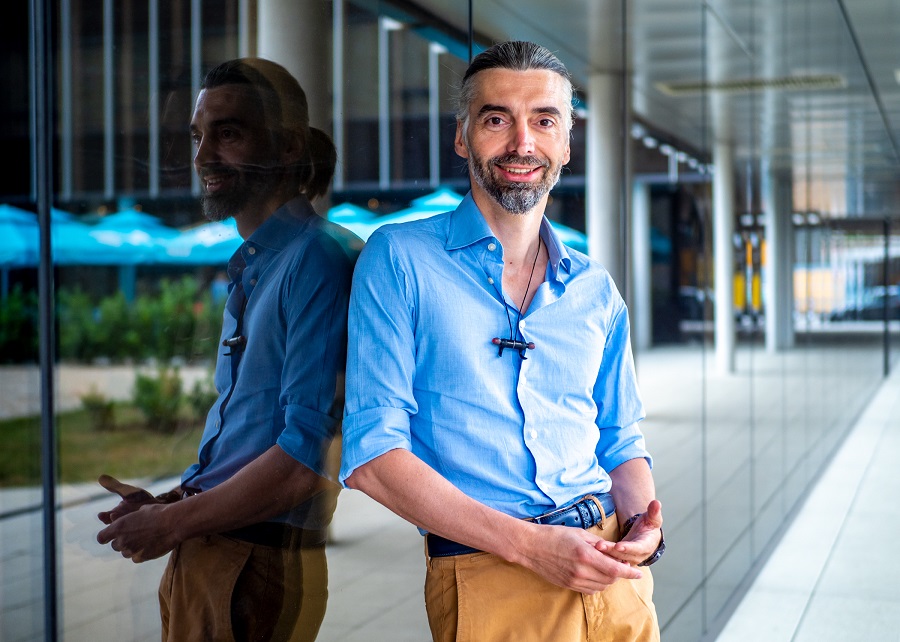
Mislav Balkovic (PhD, Assistant Professor) dean of Algebra University College is an active researcher in the area of National Qualifications Framework and Knowledge management where he participated in a number of national projects including the development of legislation for CROQF and implementation of various policy and regulatory documents in higher, VET and adult education. He is currently working on research in the area of Validation of non-formal and informal learning and the development of modern educational approaches (methodics and didactics). He was representative of Croatian employers (2010 – 2012) in the Advisory Committee for Vocational Education and Training, DG Education and Culture, EU Commission, Bruxelles. Since 2006 he has been intensively involved in the preparation of different types of development projects in the area of education. To this end, he has prepared more than 50 international and national project applications and managed some 30 different projects. Mislav currently acts as the president of the Sector skills council for Electrotechnical and Computing and is President of the Croatian Employers Association - Association of Employers in Education, during (2010 - 2016) period he was an active member of the National Council for Science and Higher education and member of the Government committee for the implementation of education, science and technology Strategy.
You can learn more about the expanding syllabus of Algebra University College on the official website.
You can connect with Mislav Balkovic via LinkedIn.
Interested in taking your higher education journey in Croatia? Check out the Total Croatia Study in Croatia guide.
Rimac Nevera Arriving in Split for Green Future Conference
June 5, 2022 - As part of the Green Future conference, one of the world's biggest attractions is coming in front of the Croatian National Theater in Split - the Rimac Nevera.
.A strong wind of green transition will blow in Split next Thursday and Friday, June 9 and 10. Storms are expected around the Croatian National Theater in Split, where, thanks to the Green Future Conference, a whirlwind of international and Croatian knowledge about new technologies, public policies and sources of funding will be created. The weather will be mostly sunny until it gets dark, and the mood will be extremely clear both during the day and after dark. We warn visitors and passers-by that Nevera is arriving in front of the Croatian National Theater in Split. Rimčeva Nevera.

The world's first serial electric hypercar is coming to the center of Split, in front of the Croatian National Theater! The 914-horsepower racer, with the fastest acceleration among cars in production today - up to 100 km / h in just 1.85 seconds and up to 300 km / h in just 9.3 seconds and a top speed of 412 km / h, will be exhibited in front of the Split Theater. The best electric car in the world will be on show for the people of Split, foreign guests, with photo possibilities in front of this technological marvel of Croatian production.

Rimac Group, which has just received an investment of EUR 500 million from SoftBank and Goldman Sachs, which means that the company exceeded EUR 2 billion in market value and became the second Croatian "unicorn", has been supporting the Green Future Conference since day one. Experts from the Rimac Group are participating in the conference as ideal interlocutors on the topic of a green future, which Rimac has been working on in its niche for more than a decade.
"We are thrilled that Nevera, who already has the status of an icon, found time for Split in her condensed and sold-out schedule. It will be a real experience for conference visitors and citizens, and it is also a picture of Split that we want to send to the world. Nevera is, in fact, much more than a car. She is a symbol of knowledge, motivation, innovation, vision and dedicated work. It shows us that in our society, despite the fact that the circumstances in which we live and work sometimes seem difficult, there are individuals and teams that are able not only to have world-class ideas, but also to realize them. We need to work on having as many such people as possible, and the Green Future Conference wants to create just such an environment, which brings out the best. We thank Rimac Group for being one of the first to trust the Green Future Conference as a new event on the map of Croatia and the world, we look forward to Nevera in Split and congratulate them half a billion times on their success and investment "- said the organizers.

The Green Future Conference will be the central place for the exchange of international and Croatian knowledge on the hottest topic of today, with dozens of current and interesting panels and the most competent speakers. In addition to Rimac, the conference is supported by another Croatian technology giant and the first "unicorn" - the company Infobip. Gold sponsors are OTP banka, Mastercard, A1 and Bosch, while sponsors are Daikin, Končar and Ernst & Young.
Learn more about the Green Future Conference on the official website.
DiWine Summer: Croatian Diaspora Meeting G2 Returns for 8th Edition
June 5, 2022 - One of the most important Croatian diaspora meeting opportunities returns for its 8th edition next month - Meeting G2.8. The press release.
Join us at MG2.8!
We present to you this year's MEETING G2.8 Conference "DiWine Summer" which will be held on Tuesday, July 5th, starting at 5 pm in the premises of the Croatian Heritage Foundation, Zagreb, Trg Stjepana Radića 3.
MEETING G2 Conference is aimed at networking business people of Croatian origin from around the world, and this year, for the first time since the 2019 Conference, our participants from Croatia and the world - will gather live in Zagreb. Due to the global pandemic, the past two years have been marked by virtual and hybrid conferences, which did not bypass MG2, so we are looking forward to reuniting live, exchanging business cards, meeting exceptional business people and sharing successful and inspiring business stories.
We believe that you will be delighted by the central theme of this year’s Conference "Croatia on the global wine list", and you will have the opportunity to participate in the most attractive part of our program which we traditionally call “WHO’S WHO in G2”.
As in the past seven years, we are persistently building business relations and encouraging investments in Croatia, and so far cooperation has been established between companies and businessmen and women from Croatia and 26 countries on five continents.
The registration fee is 100 euros, which includes participation in “WHO’S WHO in G2”, panel, wine tasting and dinner. Warm welcome and see you at MG2.8!
Association for Business Connection of Homeland and Croatian Diaspora
Radnička cesta 1A, HR-10000 Zagreb
Privredna banka Zagreb
SWIFT: PBZGHR2X
IBAN: HR3723400091110925819
You can learn more about Meeting G2.8, including the finalised programme as it appears on the official website.
For more news and features about the Croatian diaspora, visit the dedicated TCN section.


